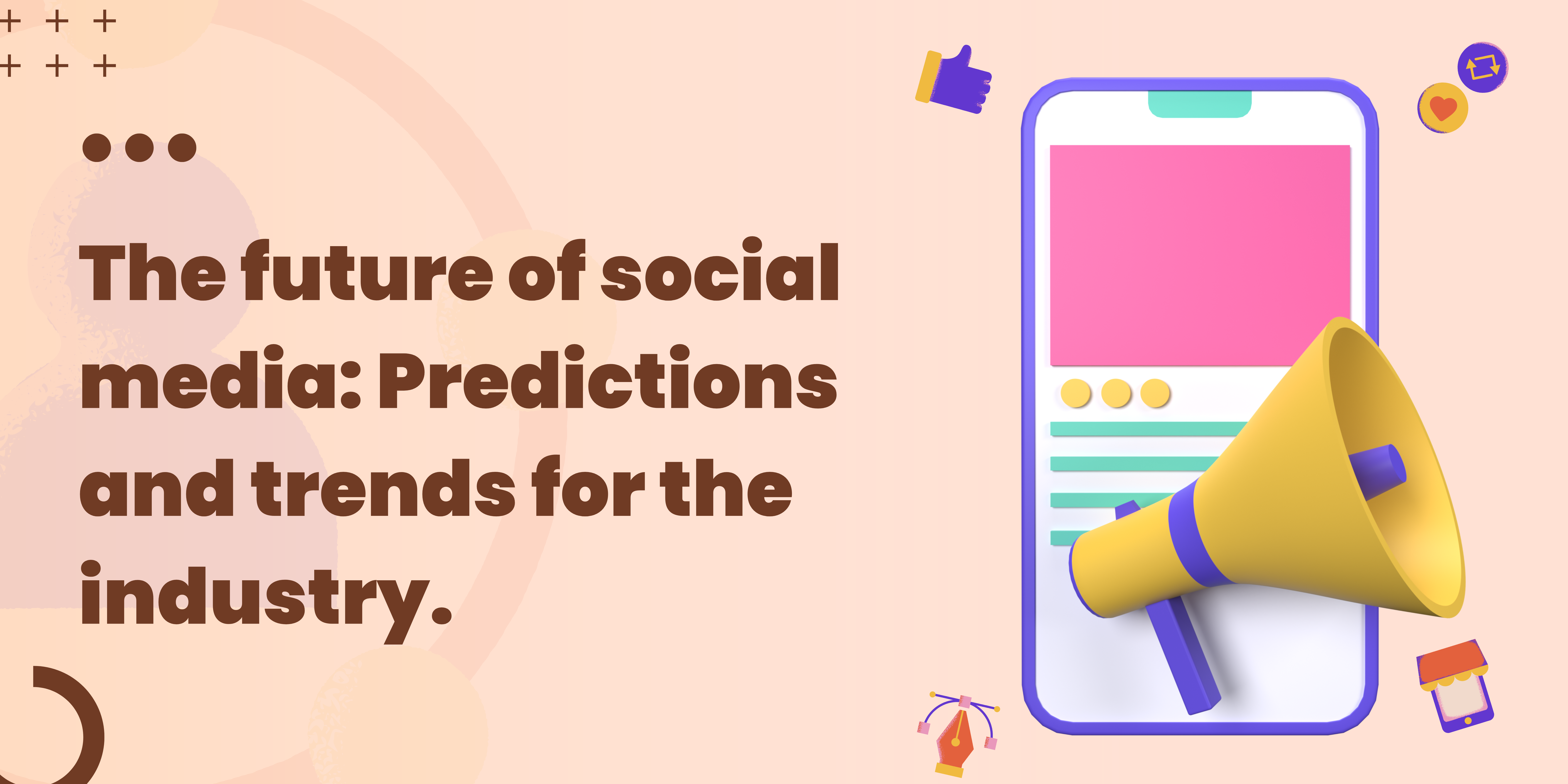
Social media has been an integral part of our lives for over a decade now. From connecting with friends and family to discovering new products and brands, social media has changed the way we interact with the world. As we look to the future of social media, there are several trends and predictions that we can expect to shape the industry.
As the social media landscape becomes more crowded and competitive, we can expect to see a rise in niche platforms. These platforms will cater to specific communities or interests, providing users with a more personalized and targeted experience. For example, there are already platforms like Strava for fitness enthusiasts, Ravelry for knitters, and Twitch for gamers. As more niche platforms emerge, users will have more options to find communities and content that align with their interests.
Augmented reality (AR) has already started to make its way into social media, and we can expect this trend to continue. AR features can enhance user experiences and make content more engaging and interactive. For example, Snapchat’s filters and lenses use AR to add animations and effects to photos and videos. We can expect to see more AR features integrated into social media platforms, allowing users to try on products, see how furniture would look in their home, and more.
Privacy and security have been major concerns for social media users in recent years, and we can expect to see platforms taking steps to address these issues. This includes providing users with more control over their data and ensuring that their information is kept secure. Additionally, we may see platforms implement new features to combat cyberbullying and hate speech, such as AI-powered moderation tools.
Video content has already become a major part of social media, and we can expect this trend to continue. Platforms like TikTok and Instagram Reels have made short-form video content more popular than ever, and we can expect to see more platforms adopt this format. Additionally, we may see more long-form video content, such as live streams and webinars, as platforms look to provide more opportunities for creators to engage with their audiences.
Influencer marketing has become a key part of social media, and we can expect to see it continue to evolve. As platforms become more crowded, it may become more difficult for influencers to stand out and attract brands. However, we may see a shift towards micro-influencers, who have smaller but more engaged followings. Additionally, we may see platforms introduce new monetization options for creators, such as paid subscriptions and exclusive content.
The future of social media is likely to be shaped by a number of trends and predictions. From the rise of niche platforms to the integration of augmented reality, social media is constantly evolving to meet the needs of its users. As we look to the future, it will be important for platforms to prioritize user privacy and security, while also providing new opportunities for creators to engage with their audiences.
Sure! Here are some additional thoughts on the future of social media:
E-commerce has already become a major part of social media, with platforms like Instagram and Facebook allowing users to shop directly from the app. We can expect to see more e-commerce features integrated into social media platforms, allowing users to purchase products without leaving the app. Additionally, we may see more social commerce options, such as peer-to-peer selling and group buying.
Virtual reality (VR) has the potential to revolutionize social media by providing users with more immersive and interactive experiences. While VR is still in its early stages, we can expect to see more social media platforms experimenting with VR features. For example, Facebook has already launched its Oculus VR headset, which allows users to interact with each other in virtual environments.
Social media has come under increased scrutiny in recent years, and we can expect to see more regulation and oversight in the industry. This includes measures to combat fake news and disinformation, as well as efforts to ensure that platforms are not used for illegal activities. Additionally, we may see more government intervention in the industry, particularly in areas like data privacy and security.
As social media becomes more crowded and competitive, authenticity will become increasingly important. Users are becoming more discerning when it comes to the content they consume, and they are more likely to engage with content that feels genuine and authentic. This means that brands and influencers will need to focus on building authentic relationships with their audiences, rather than simply promoting products or services.
Social media advertising has already become a major industry, and we can expect to see it continue to evolve. We may see more targeted and personalized ads, as well as new ad formats like interactive ads and shoppable ads. Additionally, we may see more emphasis on influencer marketing as a way for brands to reach their target audiences.
In conclusion, the future of social media is likely to be shaped by a range of trends and developments, from the integration of e-commerce to the growth of virtual reality. While there are challenges and concerns around privacy, security, and regulation, social media remains a powerful tool for connecting people and building communities. As social media continues to evolve, it will be important for users, creators, and brands to stay up-to-date with the latest trends and developments in order to make the most of this dynamic and rapidly-changing industry.